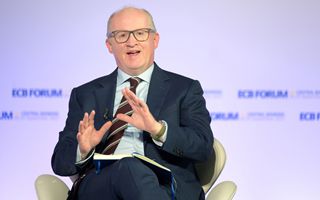(Finance) – “Europe must focus on its own performance. Of course it is useful to use global benchmarks, but ultimately the performance of the European economy it will depend on the choices made by European businesses and governments. At the same time, taking into account the geopolitical tensionsEurope has a strong incentive to ensure economic security for the future”. This was stated by the ECB’s chief economist Philip Lane in an interview with the Spanish newspaper El Confidencial.
Regarding the impact of high interest rates on the economy, Lane remarked, “We are setting interest rates to ensure that inflation returns to the target level. Once this is achieved, when we are confident that inflation will return to the target levelthen we said that it will be appropriate to reduce the level of interest rates” and “this will give space for investment”.
“The narrative we have seen over the last few months is that there is a lot of progress in relation to inflation of goods and food inflation,” Lane recalled, adding that even with respect to the prices of services, “the latest numbers from April show some progress”. “I think this is a important initial step in the phase of reduction of inflation. Historically, service inflation is the component closest to the national economy, as it is closer to wage inflation. And I think this is true all over the world.”
Regarding the decisions taken at the last meeting of the Board, the banker recalled “what we said in April was essentially that if our level of trust in the overall return of inflation to our target should improvethen it would be It is appropriate to decrease from the current level of interest rates. There are several weeks until the meeting June, but the April issue is important. Both the April flash estimate for euro area inflation and the published first quarter GDP data they strengthen my confidence that inflation should return to the target level in a timely manner. So, to date, my personal confidence level has improved since our meeting in April. But obviously further data will arrive between now and June.”
“At this point, obviously, the market believes a rate cut is imminentso a cut wouldn’t be a surprise,” Lane agreed, adding, “we will have another month of data on inflation when we meet in June. And we will also have more information on wage dynamics. There is no need to make overly certain statements. We use those weeks to look at the incoming data”.
